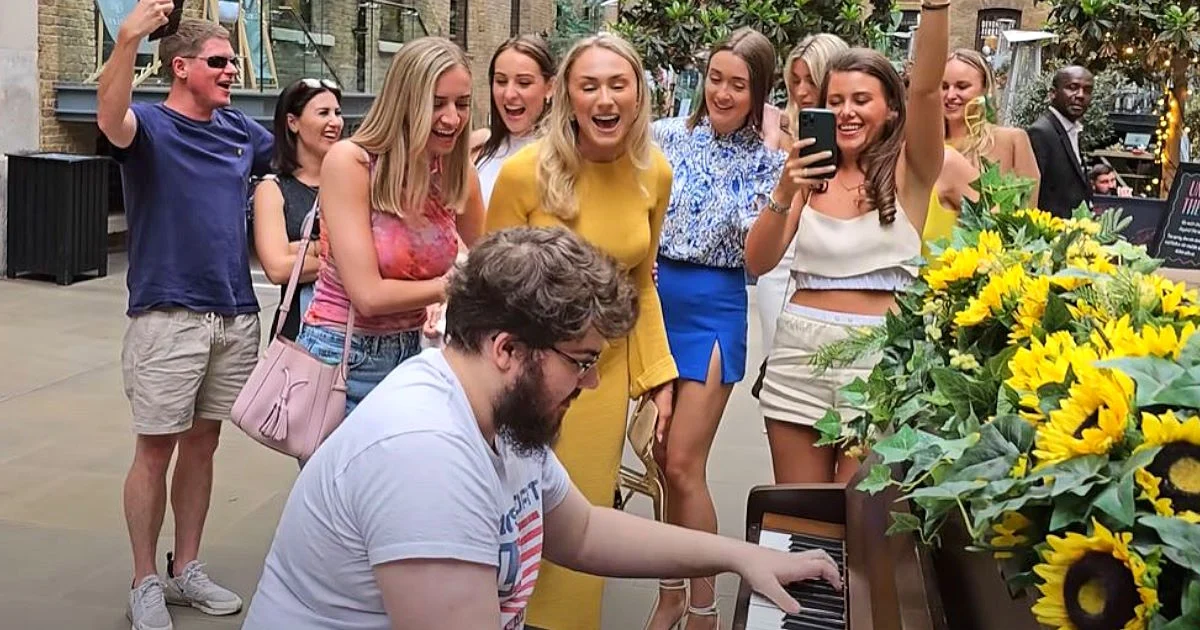Music has a special ability to unite people in the busy atmosphere of a public place, as evidenced by a recent unplanned performance that famous pianist Andrei Piano recorded. Andrei’s performance of Queen’s timeless classic “Bohemian Rhapsody,” set against the vivid cityscape as a backdrop, acts as a magnetic force, drawing in passerby and creating an unforgettable moment of collective delight.
A number of women are compelled to join in as the melody of “Bohemian Rhapsody” defines the air, their voices harmonizing with Andrei’s piano playing in an improvised chorus of musical friendship. Their smiles and giggles convey the pure joy of participating in a musical experience that cuts over boundaries of circumstance, age, and background.
The song “Bohemian Rhapsody,” written by the legendary Freddie Mercury, is proof of the enduring value of artistic expression. When it was first released in 1975 as a part of Queen’s groundbreaking album “A Night at the Opera,” the song’s experimental arrangement and genre-bending sound rocked convention. Even though some critics were skeptical at first, “Bohemian Rhapsody” won over listeners’ hearts all over the world and became one of the most recognizable songs in rock music.
Bohemian Rhapsody has had a lasting impact on popular culture throughout the years, producing an endless number of tributes, parodies, and covers. Its incorporation into the original 2018 biographical film solidified its standing as a cultural phenomenon and preserved Queen’s musical excellence and the legacy of Freddie Mercury for future generations.
“Bohemian Rhapsody” continues to resonate with audiences of all ages, as evidenced by the unplanned sing-along in the public square. Its irresistible melody and complex tapestry of emotions weave a timeless tale that transcends boundaries. Music has the ability to bring people together in a divided society by serving as a constant reminder of the common language that unites us all.

